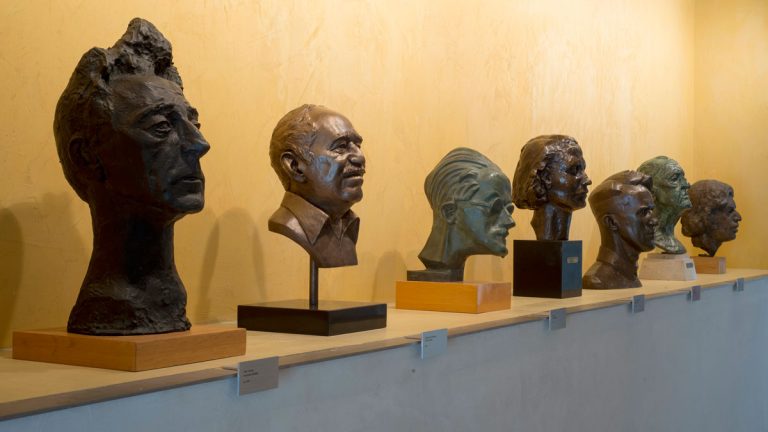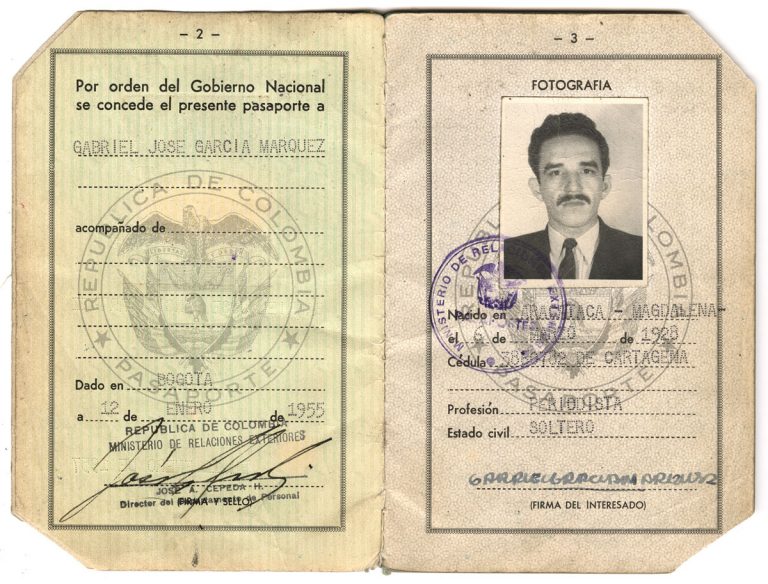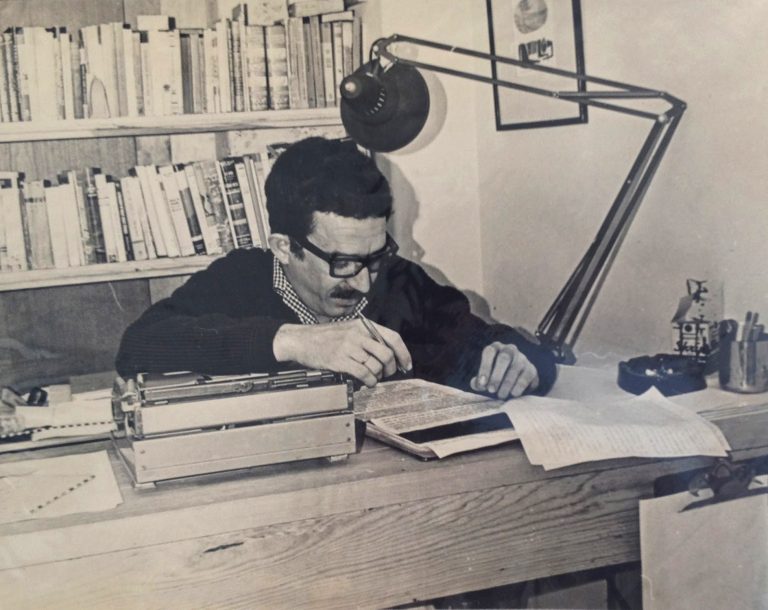When the papers of a renowned author like Gabriel García Márquez arrive at the Ransom Center, there’s always a sense of excitement among staff, who take great pride in being able to preserve and make accessible materials that are unavailable anywhere else and that offer students and scholars entirely new… read more
correspondence
Los pentimenti de Gabriel García Márquez
Bajo las pinceladas finales de las grandes pinturas, debajo de la superficie, existen en ocasiones marcas de duda, líneas escondidas y colores suprimidos. Estas pinceladas casi invisibles se llaman pentimenti: arrepentimientos, rectificaciones, remordimientos. Me gusta la palabra pentimenti
Gabriel García Márquez’s Pentimenti
Underneath the final brushstrokes of great paintings, below the surface, there are sometimes marks of doubt, hidden lines, and suppressed colors. These nearly invisible brushstrokes are called pentimenti—repentances, compunctions, remorses. I like the word pentimenti because it evokes a sense of drawn-out struggle and internal debate.




